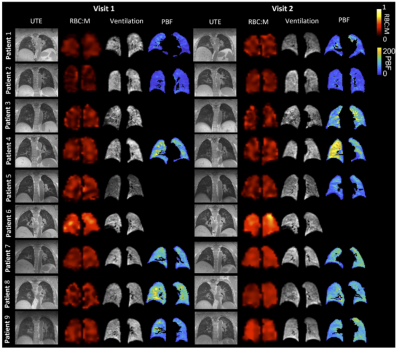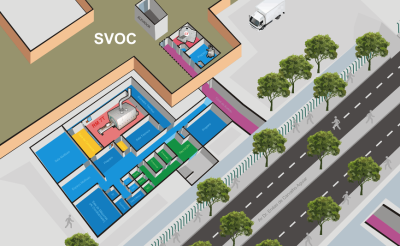ISMRT Educational Session
COVID
Joint Annual Meeting ISMRM-ESMRMB & ISMRT 31st Annual Meeting • 07-12 May 2022 • London, UK

| 15:00 |  |
Longitudinal Lung Function Assessment of Patients Hospitalised with COVID-19 Using 1H & 129Xe Lung MRI Video Unavailable
In this study we utilised a comprehensive, multinuclear MRI protocol which combines hyperpolarised 129Xe imaging methods sensitive to ventilation, lung microstructure (DW-MRI) and gas exchange (dissolved xenon spectroscopic imaging) alongside 1H DCE perfusion and UTE lung structural imaging to assess pathophysiological changes in patients who had been hospitalised with COVID-19 pneumonia, during the post-acute period.
|
|
| 15:30 | Brain MRI Findings in Infants During the COVID-19 Pandemic
Catherine Lebel
The COVID-19 pandemic has led to substantially elevated stress for many people, and especially pregnant individuals. Prenatal stress, including depression and anxiety symptoms, can have negative consequences for infants and children, including structural and functional brain alterations, as well as a higher risk of behaviour problems. I co-lead a Canada-wide study of mental and physical health, life changes, and birth/infant outcomes: Pregnancy during the COVID-19 Pandemic. Here, I will present our structural and functional neuroimaging findings in a group of infants born during the pandemic, in relation to their prenatal stress.
|
||
| 16:00 |  |
MRI as an Autopsy Tool & Its Use in the COVID Pandemic
Khallil Chaim
A medical imaging center (with US, CT and 7 Tesla MRI) integrated into the largest autopsy service for natural deaths in Latin America plays an important role in times of a pandemic. Recently, the SARS-CoV-2 pandemic has raised concerns around the world, requiring a rapid response combined with challenges due to biohazard. In this context, high-resolution MRI of the post mortem brain of deceased patients with COVID-19, with histological correlations, allows better understanding of COVID-19 beyond the characteristic primary pneumonia.
|
The International Society for Magnetic Resonance in Medicine is accredited by the Accreditation Council for Continuing Medical Education to provide continuing medical education for physicians.